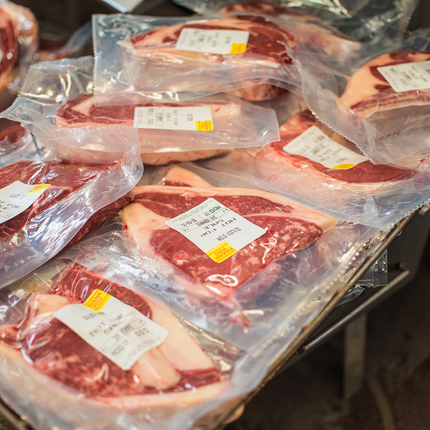Teresa Hoffman, senior communications associate, teresah@cfra.org, 402.687.2100, ext. 1012
LINCOLN, NEBRASKA – With the industry still struggling to regain its footing, Center for Rural Affairs staff and other supporters urged Nebraska lawmakers to provide funding for a program designed to assist local independent meat processors.
Legislative Bill (LB) 755, introduced by Sen. Tom Brandt, seeks $10 million in State Recovery Funds from the federal American Rescue Plan Act to fund the Independent Processor Assistance Program (IPAP), which was established last year with the unanimous passage of LB 324.
Industry disruptions began after work paused at regional packing plants at the start of the pandemic, causing large-scale beef and pork producers to turn to local processors to fill the void.
“These small business owners have done everything they can to catch up,” Center Policy Director Johnathan Hladik said in testimony before the Legislature’s Appropriations Committee Wednesday afternoon. “Garages have become freezer units and outdated equipment has been unpacked and put to use.”
As part of the IPAP, approved applicants can receive financial assistance for modification or construction of buildings; packaging, processing, and storage equipment; technology to improve logistics or enable e-commerce; and workforce training.
Drawing from data prepared by the University of Nebraska’s Department of Animal Science, Hladik estimated about 80 businesses would qualify for assistance. The Center recently spoke with 41 of them, 38 of which shared plans to use the program.
“Funding would allow each locker to process anywhere from 3 to 30 more beef per week and an additional 8 to 10 hogs,” Hladik said. “We are confident that a large number of the remaining 40 or so businesses we have not yet contacted are similarly positioned.”
During their testimony, producers and processors from across the state shared the challenges they face scheduling locker dates. Many said the lockers they have used previously don’t have openings for the rest of the year and some are even booked into 2023. Sen. Brandt said oftentimes, producers have to schedule locker dates before an animal is even born.
Ace VanDeWalle, who operates the Ord Locker in Ord, also spoke on behalf of the Nebraska Association of Meat Processors (NAMP), of which he serves as vice president.
“NAMP supports the state setting up a program to help the small and very small meat processors currently operating,” he said. “Grant money can be used by small meat processing facilities to increase capacity and efficiency, create jobs and benefit local economies and local producers in multiple ways.”
VanDeWalle said most small processors in the state are currently operating at maximum animal processing capacity. He said grant funding used to renovate current facilities or increase capacity will directly impact the direct to consumer market positions for farmers and ranchers that need more processing appointments, as well as create additional jobs at the local level and increase revenue generated across the state.
For Aunbrea Zeleny, whose family operates the Oakland Processing Plant in Oakland, the last three years have been a blur as employees work overtime to keep up with demand. Having been stretched to the limit in their current facility built in the 1960s, Zeleny said they are in the process of building a new facility, but it hasn’t come without its challenges. However, the family remains committed.
“We are hoping to continue doing what we do, but on a bigger scale and serve more people and we need the financing to do so,” she said.
Bill Alward, who operates Little Mountain Ranch & Garden near Fort Calhoun, said the IPAP would be an incremental step in strengthening food security.
“LB 755 will make an investment in not only meat processors but also in farmers like me who want to bring people closer to their food source,” he said.
At least 18 other states have used federal relief dollars to create a similar program, including Iowa, Kansas, Missouri, and South Dakota. Federal programs were also established, but they have been disappointing, Hladik said, as they are not available to USDA-inspected facilities or those that do not want to be USDA inspected.





